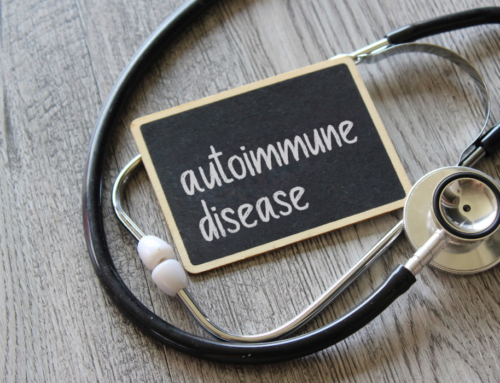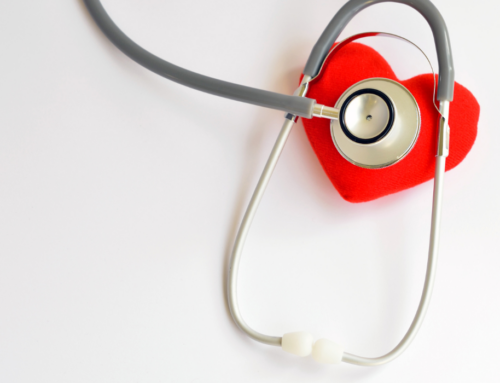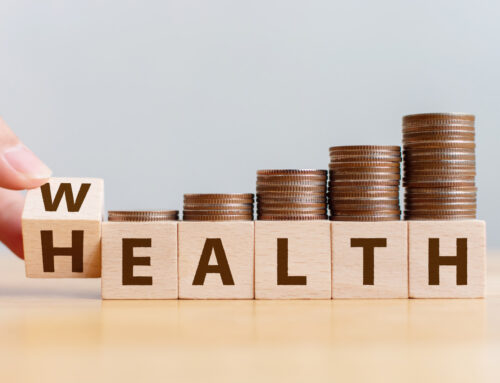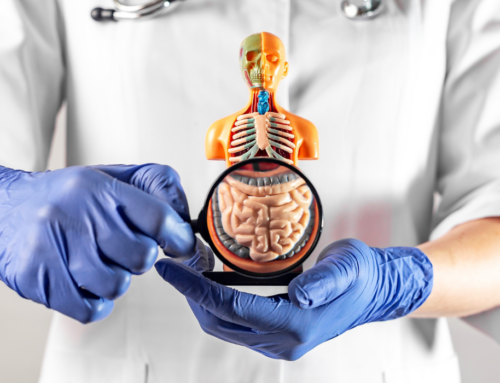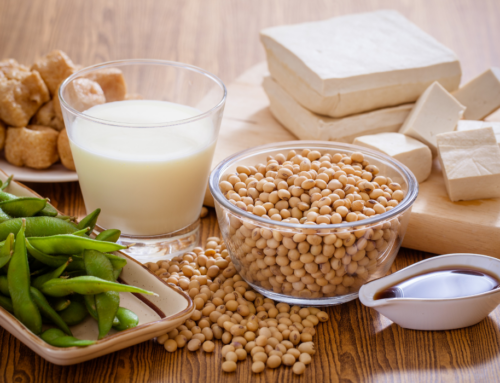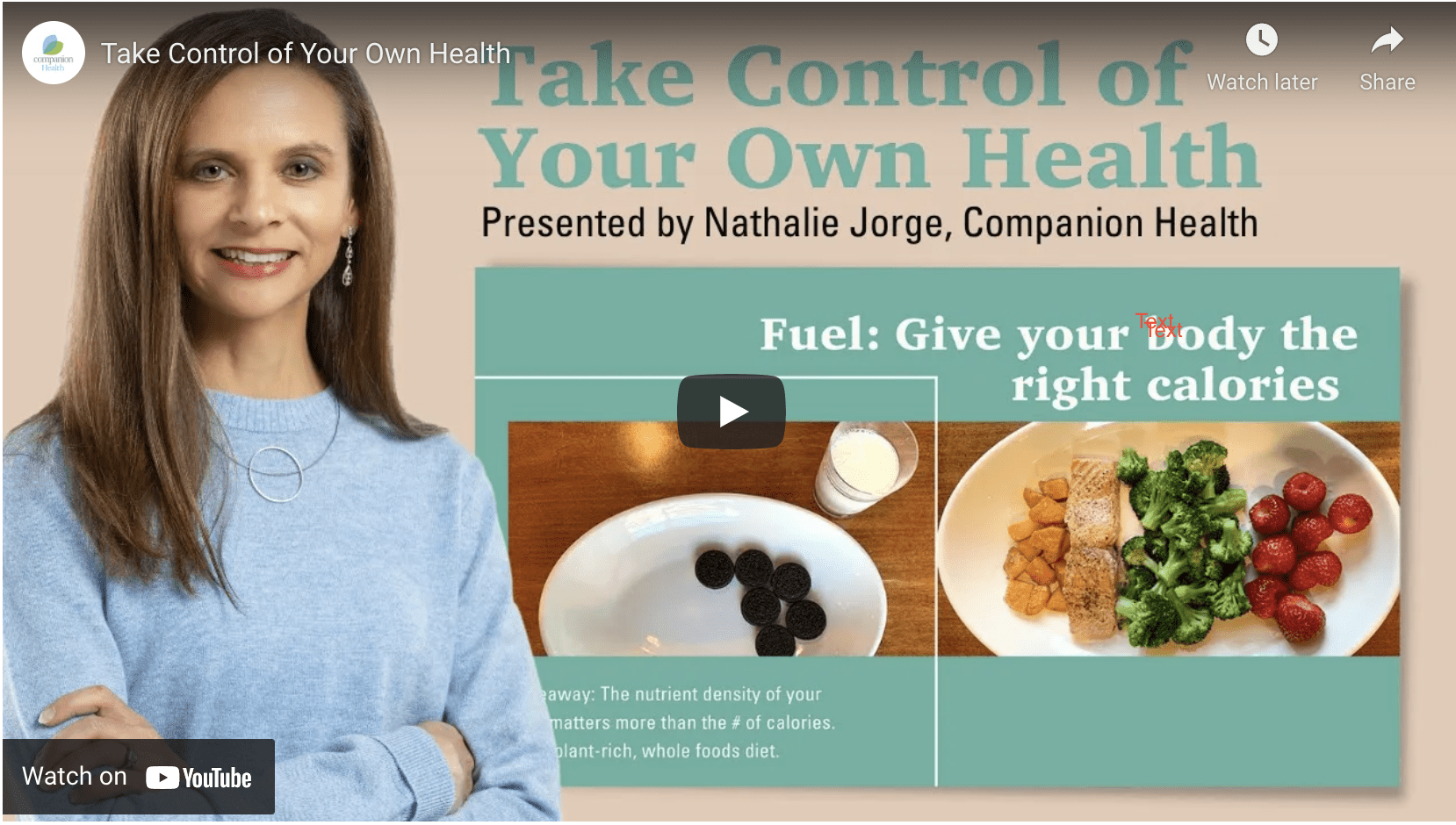
Take Control of Your Health
Why I got into health and wellness
Some of us are born into households where nutrition, physical activity, and overall wellness are at the forefront. That was not the case for me. And if it wasn’t the case for you either, I want to emphasize that it’s never too late to start. There is a lot you can do to take control of your own health and change the trajectory of your life.
I grew up in New Orleans, where I ate a lot of fast food, fried items, sugary cereals and drinks. Vegetables? Ha! As a child, there were few greens in my diet, aside from spearmint snowballs, chocolate mint ice cream, an occasional iceberg lettuce leaf and the dreaded, mushy microwaved veggies that sometimes made an appearance on my dinner plate.
Fast forward to my early years as a mom. I tried to do a little better with my kids (more fresh fruits, vegetables and home cooked meals), but I didn’t realize how unhealthfully we were all still eating.
Then we had a lightbulb moment: one of our kids got very sick around age 5. It wasn’t the pediatrician, neurologist or gastroenterologist who figured out what was going on. It was my husband and business partner, Dr. Carlos Jorge.
Optimal health is a lifelong journey
So began a lifelong wellness journey that has not only transformed our own family’s health but our professional pursuits as well. Carlos and I are committed to helping others live healthier, more joyful lives by providing evidence-based, root cause medicine through our concierge functional medicine and primary care clinic, Companion Health, PLLC.
We’ve been on this path for almost 15 years now, and we hope to shorten your learning curve by sharing the things we’ve learned along the way. Rather than throw your hands up in the air because of the flaws in our healthcare system or “bad” genes that you feel like you were blessed with, there’s lots you can do to live healthier, more joyful lives starting today. You don’t have to put up with feeling bad! YOU can take control of your health.
Genetics load the gun, but lifestyle pulls the trigger
You heard me right. Just because you’ve inherited some “bad” genes doesn’t automatically mean you’re doomed to poor health. Genetics are only part of the story. Your lifestyle often determines which of your genes, good or bad, get expressed. And just because you are getting older doesn’t mean you have to put up with more joint pain, a slower metabolism, poor sleep and cognitive decline. That’s the message we’ve repeatedly heard ever since childhood, right? That it’s no fun to get older, or it’s “all downhill from now.”
And although there are no silver bullets to looking and feeling your best, you can move through your 40’s, 50’s, 60’s, etc. feeling spry. BUT, you have to make your health a priority and put yourself in the driver’s seat. By taking small actions today, you can positively impact your healthspan, that is not just the number of years you live but the quality of the years you live.
Jump-start your journey to better health today!
I created this 30-minute long webinar, Take Control of Your Own Health, to help you get started on your own wellness journey. In it, I cover a lot of territory, including how to better navigate the healthcare system and a necessary shift in mindset that is required for us to achieve optimal health. In addition, I review 6 levers you can pull to positively impact your personal health: nutrition, movement, relationships, stress management, reducing toxic exposures, and sleep. Below are a few highlights.
- Nutrition: It matters a lot, so give your body the right fuel.
If there is one thing I want you to walk away with regarding nutrition, it’s debunking the commonly held belief that the calorie is the key to weight loss and the primary reason why we need to exercise. Spoiler alert: calories are not the key to weight loss—nutrient density is!
In Take Control of Your Own Health, I share a powerful quote from Australian nutritionist and physiotherapist, Simon Hill, who is the author of the book The Proof is in the Plants and podcast host of one of our favorites, Plant Proof. The gist: an unhealthy diet is now responsible for MORE years of poor health and deaths than any other lifestyle behavior including:
- Tobacco
- Hunger
- Infections
- Communicable diseases
- Move: Get moving and focus on building strength.
With regards to exercise, it’s not just about burning calories. We need to move to develop lean muscle mass, increase blood flow and oxygen to the brain, and improve insulin sensitivity (the opposite of insulin resistance).
- Stress Management: Determine what you can control versus what you cannot control.
With increasing levels of chronic stress in our society, more and more of us are staying in a perpetual “flight-or-flight” state, which means our bodies don’t have the chance to calm down properly and enter the necessary “rest and digest” state needed for cellular repair. Chronic stress is no joke! When we don’t have a chance to properly relax, “rest and digest,” we can start to experience chronic fatigue, digestive issues, and a whole slew of other inflammatory and autoimmune responses.
There are many ways you can begin to tackle chronic stress. One idea I share is a simple breathing hack that you can do anytime and anywhere. It’s free and you don’t have to download any apps or calm your mind to reap the benefits.
- Relationships: There’s healing power in deep connection!
Dan Buettner, a National Geographic fellow and author, has studied the health habits of people who live in so-called blue zones — regions of the world where people live far longer than the average. Positive friendships are a common theme in the blue zones. And it’s not about the quantity of friends you have. Instead, it’s about the quality of those friendships; spending time with people who share your values, interests, and passions.
- Toxins: Reduce your exposure by paying attention to what you take in through food & drink, skin, and lungs.
You’ve probably heard the much-hyped term microbiome. Well, it turns out it’s worth the hype. Each of us has far more bacteria DNA than human DNA. And these guys are important for many biological processes, most notably keeping our guts healthy. We don’t want to kill them off by exposing them to unnecessary toxins!
The easiest place to start is with your food.
Because pesticides kill bugs off crops, they also kill the beneficial bacteria in our guts that we rely on for optimal health. Glyphosate is one of the most widely used pesticides. It isn’t just used on crops to kill bugs, but it is also used as a drying agent after harvest, including the grains used to make many breakfast cereals.
Buy organic when you can or from local farmers who grow their produce sustainably.
Eating organic is more expensive, so 1) Consider eating organic as an investment in your long term health versus an unnecessary expense and 2) Determine which foods carry a greater toxic burden, so you can make better tradeoffs. One of my go-to resources for just this purpose is EWG.org, which lists an annual Dirty Dozen list (foods recommended that are high in pesticides for the year, and for which reason you should prioritize buying organic)
- Sleep is a key ingredient to optimal health.
I encourage you to stop listening to people who brag about how little sleep they need to get by. On average, most adults need 7-9 hours sleep. I shoot for a good 8 myself.
Some of my go-to sleep tips include setting up an ideal sleep environment (dark, cool, no cell phone, and a white noise machine) and establishing a consistent wind-down bedtime routine. I’ve even programmed my Apple watch and phone to remind me to start shutting things down every night at 8:59 pm. I’ve asked Carlos to further hold me accountable, so he routinely hollers “Turn off your computer!” once the clock strikes 9pm.
Habit change is where it’s at!
Clearly, there are all kinds of things you can do to take better control of your own health, but habit change is where it’s at. 40-50% of our day tends to consist of the same habits over and over again, so building awareness around your current habits is the first step to creating sustainable, beneficial change.
If you’ve read this far, you’re motivated and on your way to better health. When you watch the video, I’d love to know what you think and if you want me to dive deeper into any topics in future webinars. Please share in the comments below!
This is for general informational purposes only and does not constitute any practice of medicine or professional health care services of any type. The use of information on this blog is at the user’s own risk. The content of this blog is not intended to be a substitute for professional medical advice, for diagnosis, or for treatment. Please seek the care of your health care professionals for any questions or concerns.

